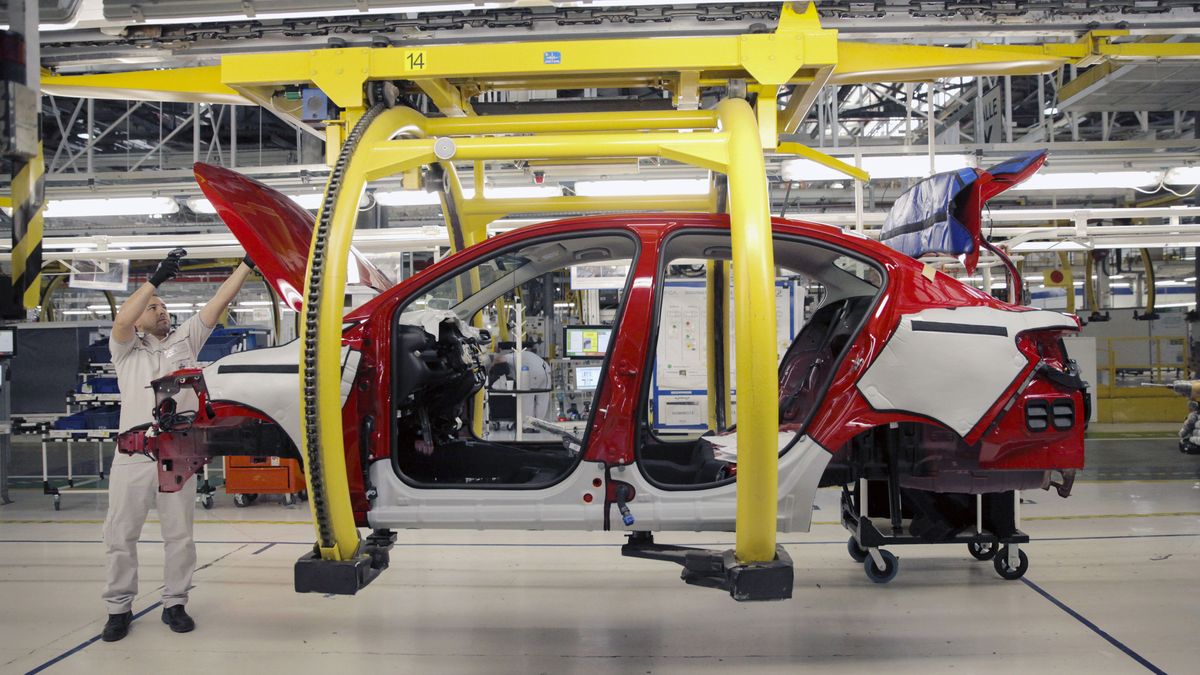In the year-on-year comparison against the same month of 2023, The drop was 7.4 percentage points compared to 62.0% in January former.
He impact of the slowdown in the economyis felt in the industry and leading indicators they begin to realize it. These values go hand in hand with the decline in industrial production which was known last week, where the INDEC reported a drop of 12.4% year-on-year.
The installed capacity, sector by sector, according to INDEC
The sectoral blocks during January presented utilization levels of installed capacity higher than the general level were refining Petroleum (83.5%), basic metal industries (76.3%), paper and cardboard (69.8%), products food and beverages (57.7%), substances and chemical products (57.1%) and non-metallic mineral products (57.0%).
Meanwhile, the sectoral blocks that are located below the general level They are edition e impression (53.9%), products of the tobacco (50.5%), products Rubber and plastic (43.5%), products textiles (36.7%), metalworking except automotive (33.4%) and Automotive industry (25.7%).
In January 2024, compared to the same month in 2023, the main negative incidents are observed in chemical substances and products and in the metalworking industry, except automotive.
Industrialists warn about the bankruptcy of SMEs due to the opening of imports
The drop in the industry’s installed capacity could deepen due to the Government’s decision to free and lower taxes on imports of finished products of the basic basket. The measure, which the Executive Branch argues is to lower inflation, put the SME industry on alert, fearing bankruptcy and massive layoffs.
The president of Industriales Pymes Argentinos (IPA), Daniel Rosatowarned this Wednesday that the measure announced by presidential spokesperson Manuel Adorni “It will cause the bankruptcy of thousands of industrial SMEs,” which will result in a “massive destruction of jobs.” And he warned that it will generate “a spiral of the economic and social crisis of Argentines.”
Rosato regretted that the Government of Javier Milei “has found in Argentine SMEs those responsible for the price markings, which caused the inflationary rise.”
The industrialist considered that the national administration did not take into account “the rise in production costs, which generated the liberation of prices, after the December devaluation, nor the unprecedented profitability of the large supermarket chains, who managed to almost double the prices sent from the factories.
“Blaming local manufacturers of basic basket products for the rise in inflation is a decision that is as disproportionate as it is erroneous,” said Rosato and added: “We SMEs have been facing a production crisis for a long time, with cost inflation that restricted the profitability of companies to the maximum. The drop in consumption generated a state of alert, because it was increasingly difficult to sustain installed capacity with deteriorating income. If we increased prices unsustainably, we were not going to sell anything. If only that calculation is made, it can be confirmed that the remarking of the gondolas is not our responsibility.”
Source: Ambito




